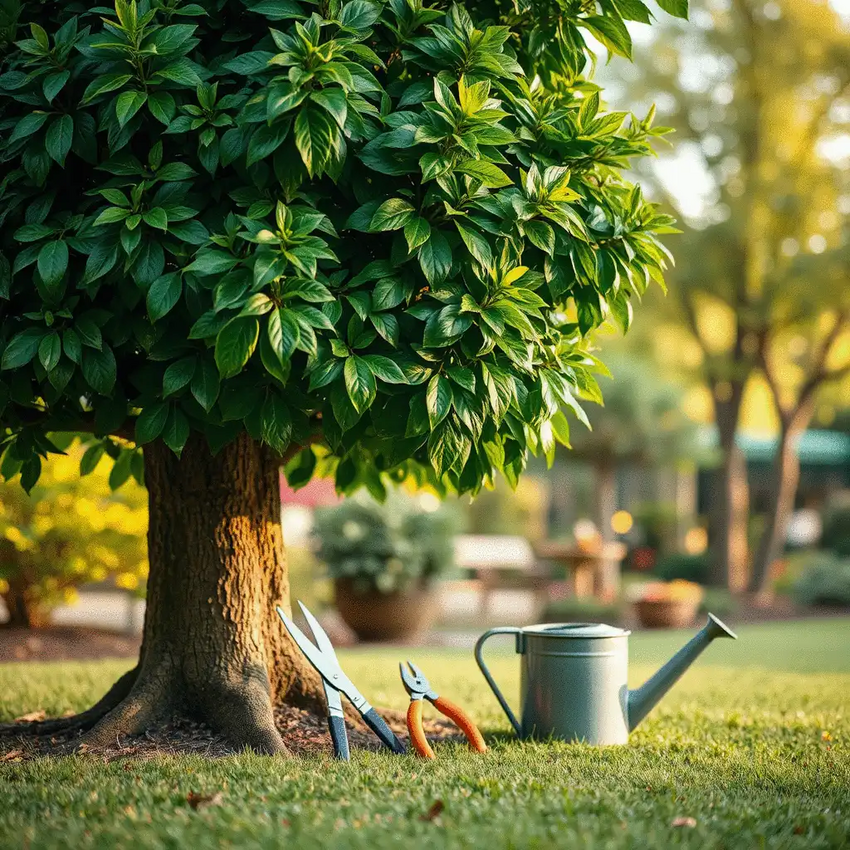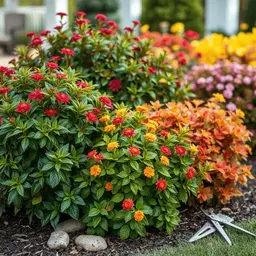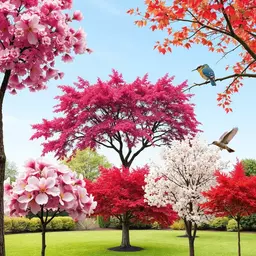Outdoor Spaces for Guest Entertaining
By Celia Fairchild / Feb 24
Did you know that well-maintained trees can enhance both the beauty of your landscape and the health of your environment? Understanding the nuances of tree care is essential for any homeowner looking to create a vibrant outdoor space.
Understanding the essential aspects of tree maintenance is crucial for fostering healthy trees in your landscape. Below is a visual representation of the core components involved in tree care.
Adequate and appropriate watering is crucial for tree growth. Regular watering schedules help ensure trees receive the moisture they need.
Healthy soil provides the necessary nutrients for trees. Testing soil quality and amending it can significantly improve tree health.
Trees need access to sunlight to photosynthesize effectively. Positioning trees for optimal light exposure is vital.
Regular checks for pests and diseases are vital for early detection and treatment. Implementing preventative measures can protect tree health.
As a landscape designer and horticulturist, I often emphasize the importance of tree maintenance to my clients. Trees are not just beautiful elements in any garden; they also provide essential benefits such as shade, beauty, and improved air quality. Understanding how to care for these magnificent organisms is vital for their health and longevity, which in turn enhances the overall aesthetic of your landscape.
Tree maintenance involves a variety of practices aimed at ensuring the health, safety, and appearance of trees. Regular care not only helps trees thrive but also prevents potential hazards that may arise from neglect. By investing time and effort into tree maintenance, you can create a stunning environment that reflects your unique style and fosters a deeper connection with nature.
Tree maintenance is the practice of caring for trees to ensure their health and vitality. This encompasses a range of activities, including watering, pruning, fertilizing, and monitoring for pests. By understanding the significance of these practices, homeowners can take proactive measures to maintain their trees effectively.
Why is tree maintenance so important? Here are a few compelling reasons:
At Ornamental Yard, we believe that understanding tree maintenance helps homeowners foster beautiful, healthy landscapes that they can enjoy for years to come. Through our expert tips and guidance, we aim to empower you to create your ideal outdoor space.
To maintain healthy trees, it’s essential to understand the factors that contribute to their well-being. Here are some key elements to consider:
By focusing on these elements, you can create a nurturing environment that allows your trees to flourish. Remember, a thriving tree not only enhances your garden's beauty but also contributes to the ecosystem.
Arborists play a crucial role in tree maintenance by providing expert knowledge and services that ensure the health and safety of your trees. These professionals are trained to assess tree health, diagnose issues, and recommend the best practices for care. In some cases, they may perform specialized tasks such as pruning, fertilization, and cabling.
To better understand the qualifications and standards within the arboricultural profession, resources from organizations such as the International Society of Arboriculture (ISA) offer valuable insights. The ISA provides certifications and promotes best practices in tree care, ensuring that arborists have the necessary knowledge and skills to provide quality service.
Here are some benefits of hiring an arborist:
At Ornamental Yard, we appreciate the value of collaborating with arborists in our projects, as they bring specialized expertise that complements our vision for stunning outdoor spaces.
Regular tree inspections are vital in identifying problems early on and ensuring long-term tree health. A tree health assessment can reveal underlying issues such as structural weaknesses, pest infestations, and diseases. By conducting these evaluations, you can take proactive steps to mitigate risks.
Consider these key points for effective tree assessments:
At Ornamental Yard, we understand that a well-maintained tree not only enhances the beauty of your garden but also contributes to a safer environment for you and your family. By prioritizing tree care, you can create a sanctuary that you can enjoy for years to come!
Did you know? Regular mulching around the base of your trees can significantly improve their health. Mulch retains moisture, suppresses weeds, and adds nutrients to the soil as it breaks down. Aim for a 2-4 inch layer of organic mulch, keeping it a few inches away from the trunk to prevent rot.
Connecting with others who share a passion for tree care can greatly enhance your gardening journey! Within the vibrant community of tree enthusiasts, you will discover a wealth of knowledge and support. Engaging with like-minded individuals fosters a sense of belonging and encourages you to explore new techniques and practices in your tree maintenance routine.
One of the best ways to start is by diving into some Frequently Asked Questions about tree maintenance. This section not only helps clarify common misconceptions but also opens the door for further discussion. Let’s look at some questions you might have:
One can find great information on tree diseases and pests at the USDA Forest Service. This will help you identify and manage tree health issues.
Your voice matters, and sharing your experiences can inspire others in the community! I encourage everyone to leave comments and reviews about their tree maintenance journeys. Whether you've just planted your first tree or are a seasoned gardener, your insights can be incredibly helpful for someone else.
Engaging in discussions through comments not only helps you connect with fellow enthusiasts but also contributes to a treasure trove of shared knowledge. You might discover innovative practices or tips that can elevate your tree care game!
Being part of a larger network of tree advocates can lead to exciting opportunities! Community forestry programs and tree advocacy groups play a crucial role in promoting sustainable practices and enhancing local green spaces. By participating in these groups, you can contribute to efforts that benefit both your neighborhood and the environment.
Consider getting involved with local initiatives or volunteering for tree planting events. Not only will you be contributing positively to your community, but you’ll also learn invaluable lessons about tree care and maintenance from experienced volunteers and horticulturists.
As we wrap up this section, let’s take a moment to recap the seasonal best practices for tree maintenance. Being consistent with these practices ensures your trees thrive throughout the year. Here's a quick summary:
Now that you’re armed with essential insights and practical advice, it’s time to take action! Join me at Ornamental Yard to further explore tree maintenance and share your journey. Let's grow together, share our experiences, and contribute to a greener future!
Feel free to ask questions, share your thoughts, or provide feedback in the comments below. I can’t wait to hear about your tree care adventures and see how we can inspire one another!
Here is a quick recap of the important points discussed in the article:

 Outdoor Spaces for Guest Entertaining
Did you know that a well-designed outdoor space can elevate your gatherings from ordinary to extraor
Outdoor Spaces for Guest Entertaining
Did you know that a well-designed outdoor space can elevate your gatherings from ordinary to extraor
 Seasonal Tips for Shrub Care
Did you know that proper seasonal care can dramatically enhance the beauty and health of your orname
Seasonal Tips for Shrub Care
Did you know that proper seasonal care can dramatically enhance the beauty and health of your orname
 Ornamental Trees for Birds and Wildlife
Are you looking to create a vibrant, wildlife-friendly garden? Ornamental trees not only enhance the
Ornamental Trees for Birds and Wildlife
Are you looking to create a vibrant, wildlife-friendly garden? Ornamental trees not only enhance the